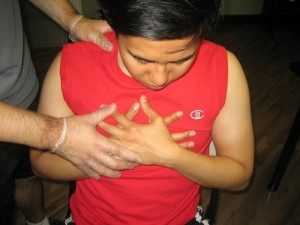Atrial flutter is an erratic heart rhythm that causes the heart to beat in an irregular manner. If an individual has atrial flutter, the electrical transmissions which instruct the heart when to pound develop a smaller circuit in the upper heart chambers instead of travelling from the SA node of the heart to the AV node as they should.
These impulses circulate rapidly around the atria which causes it to beat rapidly than normal. The bottom heart chambers could not pump this rapidly, thus it usually beats between 75-150 beats in a minute.

The atria and ventricles beat at different speeds which strains on the heart. It also causes the blood to build up in the ventricles which results to the formation of a blood clot in the heart. In case this clot breaks off, it can trigger a stroke which is why proper treatment is vital.
What are the possible causes?
Individuals with atrial flutter typically have an underlying heart disorder such as cardiomyopathy, heart valve diseases, coronary heart disease, congenital heart disease, high blood pressure, heart inflammation or other conditions such as thyroid or lung issues.
Some individuals with atrial flutter might also have atrial fibrillation and can suffer from episodes of atrial flutter followed by phases of atrial fibrillation.
Management
The doctor might recommend that the individual will undergo echocardiogram (ECG) or an electrophysiological (EP) study in diagnosing atrial flutter.
Once atrial flutter is confirmed, the doctor might suggest a cardioversion or ablation treatment or even medications such as calcium channel blockers, beta blockers and other anti-arrhythmic drugs.
The risk of ending up with a stroke can be reduced by taking an anticoagulant medication such as warfarin.
Quick Note / Disclaimer
The material posted on this page on atrial flutter is for learning and educational purposes only. To learn to recognize circulatory emergencies including atrial flutter, register for a first aid and CPR course with Red Deer First Aid.

